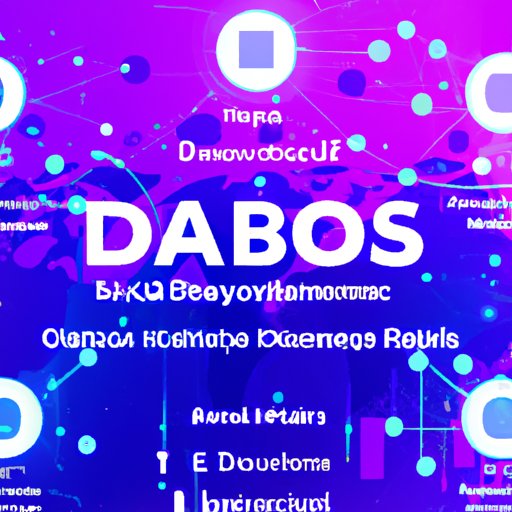Introduction
Blockchain technology is a distributed ledger system that enables secure and transparent digital transactions. It has the potential to revolutionize the way we conduct business and store data, by removing the need for third-party intermediaries and allowing individuals to interact directly with each other. But one of the key questions surrounding this technology is: Who owns the blockchain? In this article, we will explore different ownership models and regulations surrounding blockchain technology, in order to gain a better understanding of who owns the blockchain.
Analyzing the Ownership Structure of Blockchain Technology
The ownership structure of blockchain technology can vary depending on the type of blockchain being used. Generally speaking, there are three main types of blockchain ownership models: private, public, and consortium blockchains. Private blockchains are owned and operated by a single entity and are not open to the public. Public blockchains, on the other hand, are open to all users and are maintained by a network of computers. Lastly, consortium blockchains are owned and managed by a group of entities, such as banks or governments. Each of these models has its own set of pros and cons, which should be carefully considered when deciding which model is best suited for a particular application.
When it comes to owning a blockchain, there are some advantages and disadvantages that should be taken into account. On the plus side, owning a blockchain allows users to have more control over the data they store and access, as well as the ability to customize the system to meet their needs. Additionally, blockchain owners are able to reap the rewards of any fees associated with the use of their blockchain. On the other hand, owning a blockchain also comes with certain risks, such as the risk of malicious actors gaining access to the system or the cost of maintaining the system. As such, it is important for potential owners to weigh the pros and cons before making a decision.
How is Blockchain Ownership Regulated?
In addition to the different types of ownership models mentioned above, blockchain ownership is also subject to various regulations. These regulations vary from country to country and can include restrictions on who can own a blockchain and what activities they can perform on it. For example, many countries have laws prohibiting the use of blockchain technology for illegal activities such as money laundering or terrorist financing.
Furthermore, the roles of private and public blockchain owners also differ. Private blockchain owners typically have full control over the system and are responsible for setting up and maintaining the blockchain. Public blockchain owners, on the other hand, are typically only responsible for verifying transactions and ensuring the security of the system. Both parties must adhere to applicable laws and regulations regarding blockchain ownership.
Finally, legal implications of blockchain ownership can also vary depending on the jurisdiction. In some cases, blockchain owners may be held liable for damages resulting from unauthorized use of their system. Additionally, certain countries may require blockchain owners to register with regulators or obtain licenses in order to operate legally. As such, it is important for potential owners to research the legal implications of blockchain ownership in their jurisdiction before proceeding.
Investigating the Potential of Decentralized Autonomous Organizations (DAOs) as Blockchain Owners
Decentralized Autonomous Organizations (DAOs) are becoming increasingly popular as a form of blockchain ownership. A DAO is an organization that operates autonomously using a distributed ledger system, with no centralized authority or governing body. This type of ownership model offers several advantages, such as greater transparency, faster transaction times, and reduced costs. However, there are also some drawbacks to consider, such as the potential for malicious actors to take control of a DAO or the lack of regulatory oversight. As such, it is important for potential owners to do their research before deciding if a DAO is right for them.
Conclusion
In conclusion, the answer to the question of who owns the blockchain is complex and varies depending on the type of blockchain and the jurisdiction in which it is located. Private, public, and consortium blockchains all have their own set of advantages and disadvantages, and all are subject to various regulations. Furthermore, decentralized autonomous organizations (DAOs) offer a unique form of blockchain ownership that has both benefits and drawbacks. Ultimately, it is up to potential owners to decide which type of ownership model and regulations best suit their needs.
In summary, blockchain technology has the potential to revolutionize the way we conduct business and store data. However, it is important to understand who owns the blockchain and the different ownership models and regulations that apply. By exploring the different types of ownership models, how these are regulated, and the potential of DAOs, we can gain a better understanding of who owns the blockchain.
(Note: Is this article not meeting your expectations? Do you have knowledge or insights to share? Unlock new opportunities and expand your reach by joining our authors team. Click Registration to join us and share your expertise with our readers.)
